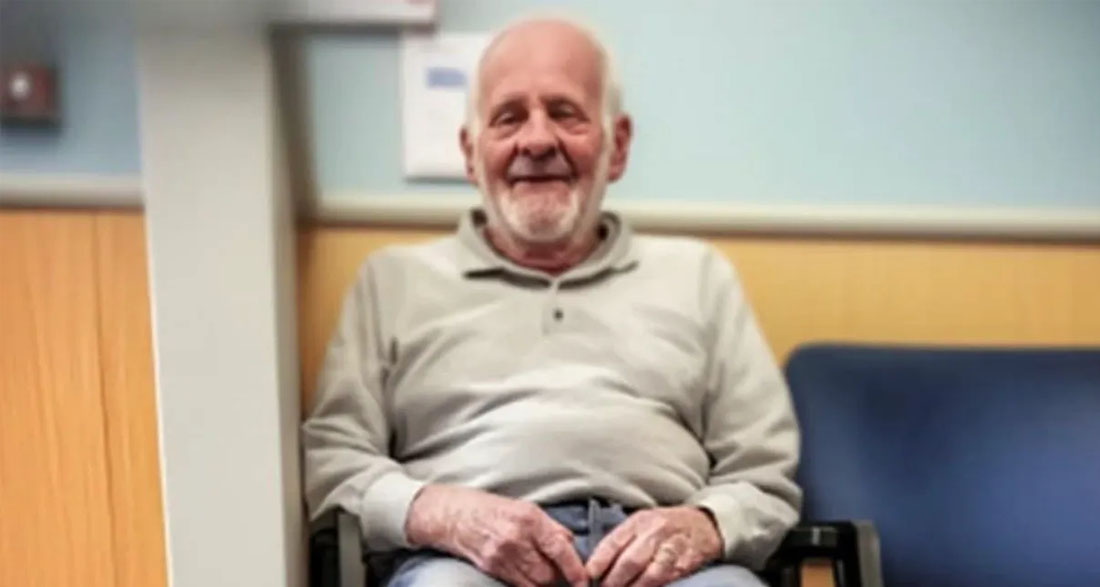I was fired for helping an old man who had dementia and thought his sneakers were “trying to escape.” At the time, I believed I had destroyed my future by showing a little kindness. But when the head nurse tried to steal credit for what I had done, those wild sneakers exposed her lies in the most unexpected way.
I had been working at the clinic for three months. It wasn’t my dream job, but it paid the bills, and I hoped it would lead me toward my goal—working in elder care. I had taken so many specialized courses, trained for years, and dreamed of helping people like my grandfather. But instead of doing what I loved, I found myself constantly trying to stay out of trouble with Karen.
Karen was the head nurse. She watched my every move, as if just waiting for me to slip up. She always had something negative to say.
“Your paperwork is untidy again, Pam,” she’d snap, or “We don’t do things that way here, Pam.”
Every sentence came with a fake smile and a little glint in her eyes—like she was saving every mistake I made to use against me later.
I told myself to ignore her. Just get through the day. Stay professional.
Then came the night that changed everything.
It started badly and just kept getting worse. The coffee maker broke, and without caffeine, the entire staff was moody. I was already twelve hours into my shift and ready to drop. And then, my replacement called.
“I’m so sorry,” she said on the phone. “There’s been a car crash on the highway. I’m stuck in traffic. I’ll be at least an hour late.”
I sighed, rubbing my eyes. My whole body ached, but what could I do? I couldn’t leave the patients alone.
I started packing my things, just waiting for her to show up, when I noticed a man slowly walking into the building.
He was older, wearing a neat gray suit that looked straight out of the 1960s. His eyes were searching, like he wasn’t sure where he was.
“Hello, sir,” I said gently, stepping toward him. “Can I help you with something?”
He looked at me, eyebrows raised. “There’s a… my shoes… they’re untied,” he said. “Can you tie them for me, Margaret?”
I froze for a second. He didn’t seem dangerous, but he was clearly confused. My shift was over, but I couldn’t just walk away.
“Of course,” I said kindly. “Let’s go somewhere quieter.”
I led him to a seat in a small corner room and helped him sit down. Then I ran back to the nurse’s station to grab him a cup of water. He looked dehydrated, and I had no idea how long he’d been out wandering.
Technically, we weren’t supposed to treat anyone unless they were fully registered. But this wasn’t just anyone. This man had dementia. He needed help, not a form to fill out.
When I gave him the water, he immediately poured it into a potted plant.
“All done!” he said proudly. “Margaret usually waters the roses, but she’s visiting her sister in Toledo.”
I smiled. “That’s wonderful. Maybe we should call Margaret and let her know how the roses are doing?”
“I’m on my way to the bus station,” he said. Then he looked down at his feet, eyes wide with panic. “But my shoes! They’re untied again!”
I looked. His laces were everywhere—like two snakes slithering across the floor.
“They’re trying to escape again,” he whispered. “They always do that when Margaret’s not home. Someone has to catch them!”
“Don’t worry,” I said, kneeling beside him. “We’ll catch those sneaky shoes together. They won’t get far, not with both of us here!”
He started cheering me on as I pretended to chase down his runaway laces. “Quick! Get the left one! It always runs faster!”
Just as I finished tying them and told him the sneakers were officially captured, I heard the sharp click-clack of heels behind me.
Karen.
Her voice was like ice. “What are you doing here?”
I looked up slowly, heart racing. “This gentleman is confused. He needs help. I—”
“You are breaking protocol!” she snapped. Her face turned bright red, but her eyes sparkled with excitement. “You know we cannot treat unregistered patients! That’s it. You’re fired.”
“He has dementia,” I said firmly. “He could hurt himself. He could wander into traffic or fall. We can’t just ignore him.”
“You are done,” she hissed. “Clear out your locker and hand in your badge.”
I stood up straight and took a deep breath. “Let me finish helping him first. I will not leave him like this.”
After some gentle questions, I got the man to show me a crumpled piece of paper with an address and some phone numbers. I gave it to Lisa, the receptionist, who nodded quickly.
“I’ll call his family right now,” she whispered. “This isn’t right, Pam. You don’t deserve this.”
I packed my things with shaking hands. I felt humiliated, hurt, and scared. Had I just thrown away years of nursing school and elder care training because I tied someone’s shoelaces?
Before I left, I checked in on him one last time—but he was gone. No one knew how or when he had left. The guilt hit me hard. What if he was out there alone, scared, and lost?
The next morning, my phone wouldn’t stop ringing. Texts, calls, notifications… I ignored them all. I figured it was Karen gloating or maybe people who’d heard what happened.
I spent the day rewriting my résumé, looking at job listings, trying not to cry. I kept thinking: Was I wrong to help him? Was I really that unprofessional?
That evening, someone knocked at my door.
I almost didn’t answer. I was in my pajamas, my hair was a mess, and I felt like a failure. But something told me to open it.
Standing there was the same man from the clinic—but he was completely different. His posture was tall. His suit was crisp and elegant. His eyes were clear and sharp, full of intelligence and warmth. Beside him stood a polished assistant, like someone out of a high-end medical ad.
“May I come in?” he asked gently. “I believe I owe you an explanation.”
Over coffee at my tiny kitchen table, he introduced himself.
“My name is Harold,” he said. “I own the entire Healthcare Network—including the clinic where you worked. I’ve been doing secret ethics checks at all our centers. You, Pam, are the only one who passed.”
My jaw dropped. “Wait… that was a test?”
He nodded. “Karen came to my office today. She tried to take credit for helping me. Claimed she noticed I was confused and stepped in.”
He shook his head with disgust. “But when I asked her about the escaping shoes, her face went blank. She had no idea what I meant. That told me everything I needed to know.”
Then he smiled, but it was serious. “I fired her immediately. I’ve also reported her for falsifying records and professional misconduct. She’ll never work as a nurse again.”
His assistant laid a thick folder on the table. Inside were blueprints—massive ones—for a beautiful facility. It was unlike anything I’d ever seen.
“My father had dementia,” Harold said, his voice softer. “He spent his final years in cold, emotionless care centers. People saw him as a problem to manage, not a person to respect. He also used to say his shoes were escaping…”
He trailed off, smiling sadly. “After he passed, I promised myself I’d create something better. A place where people with dementia could be treated with kindness and dignity.”
He tapped the blueprint with his finger. “And I want you to run it.”
I stared at the designs through blurry eyes. There were gardens for therapy, lounges for families, game rooms, cozy bedrooms—not hospital-like at all. And training programs for staff focused on compassion.
“But I’m just—” I started to say.
“You,” Harold interrupted, “are exactly the kind of person I’ve been looking for. Someone who sees humans, not just rules. Someone who would risk her job just to tie a confused old man’s shoelaces.”
Everything I had ever worked for—every late night of studying, every extra course, every time I stood up to Karen—had led me here.
“Yes,” I said, barely whispering. Then louder, with a trembling smile: “Yes, I accept.”
Harold beamed. “I was hoping you would. Now, let’s talk about how we can turn this dream into reality. I’d love your ideas on staff training, especially around memory care.”
As he began sharing his vision, I realized I was smiling for the first time in days. Just twenty-four hours ago, I thought I had lost everything.
But in truth, it was only the beginning—all because I stopped to help someone catch their runaway shoes.














